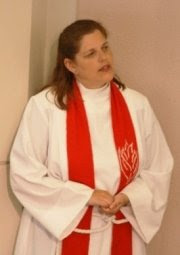
The idea of Lent is spiritual culture, and always, as a part
of that idea, has been associated with Lent the idea of abstinence. We are looking forward to a soberer and
quieter life, a life, which in some form or other is to fast from some of its indulgences. Is it not good that we should try to see what
God designs by those Lents, those periods of sobered life and abstinence from
outward pleasures, which both in God’s word and in the intimations of our own
nature have God’s sanction and authority?
God has a
reason for everything. Our best
religious progress consists in large part of this, the coming by sympathy with
God to see the reasons of what have been to us bare commandments. The change from the arbitrary to the
essential look in what God does is the richest and most delightful feature of
the spiritual growth.
Let us ask
what is the use of fasting, for so we shall best come to understand the true methods
and degrees of fasting. And let us begin
with this. All bodily discipline, all
voluntary abstinence from pleasure of whatever sort, must be of value either as
a symbol of something or as a means of something. These two functions belong to it as being connected
with the body, which is at once the utterer and the educator of the soul
within.
Just
suppose any great mental or moral change to come in someone’s life. We will not speak of the great fundamental
religious change of conversion; but any change from frivolity to earnestness,
from lightness to seriousness of life.
The one who has been carless, free, and irresponsible, taking life as it
came, with no reality, no sense of duty, undertakes a different way of living,
begins to study, begins to work, seeks knowledge, accepts obligations. The old
life fades away and a new life begins. Self
indulgence is put aside. Self-devotion
takes its place. This is a spiritual, an
inward change. It is independent of
outward circumstances. One may
conceivably live this new life, and everything external be still the same that
it has always been. But practically this
more earnest inward life suits the outer life to itself. Quickly or gradually the one who has begun to
life more seriously within, begins to live more simply without. Such a one comes instinctively to less
gorgeous dresses and barer walls and slighter feasts. The outer life is restrained and
simplified. And this restraint and
simplicity is at once a symbol or expression of the changed inner life, and a
means for its cultivations.
If the change
is one which involves repentance and self-reproach, the giving up of a life
which never ought to have been lived at all for one that always has been a
duty, then both of these offices of the outward self-denial become plainer. The stripping of the old luxury off from the
life is at once an utterance of humble regret for a wrong past, and also an
opening of the soul to new and better influences. It is as when a reveler at a banquet is suddenly
summoned to a battle where he ought to be in the front rank. As he spring up
from the couch in self-reproach, the casting away of his garlands and his robes
means, first, his shame at having been idle and feasting when he ought to have
been at work; and second, his eagerness to have his limbs free so that the work
which he has now undertaken may be well done.
His stripping off of his wanton luxuries is at once a symbol of his
self-reproach for the past, and a means of readiness for the new work that
awaits him. And that is the meaning of
all voluntary mortification which has any meaning.
Fasting provides an
opening of the soul. What are our luxuries?
What are we overwhelmed by? What should
we fast from?
Phillips Brooks
(1813-1893) was rector of Trinity Church Boston for over twenty years before
serving briefly as bishop of Massachusetts.
Many volumes of his sermons were published and his hymn, “O little town
of Bethlehem,” is one of the best known of all Christian hymns.
From A Time to Turn
by Christopher Webber

No comments:
Post a Comment